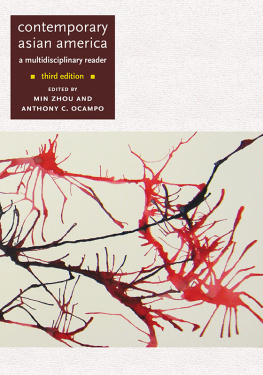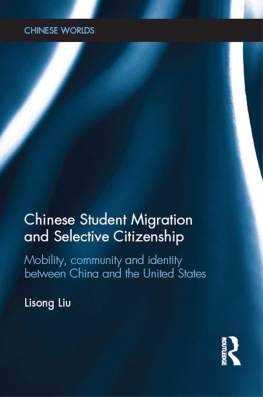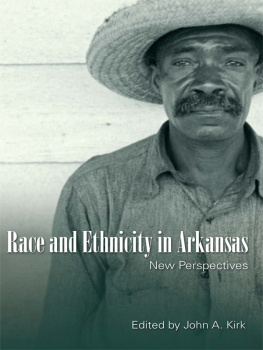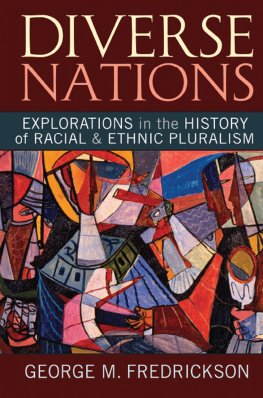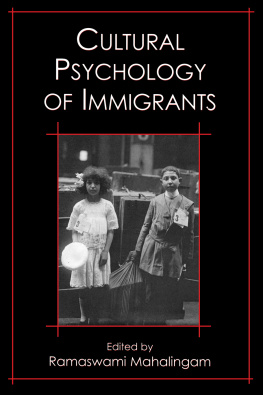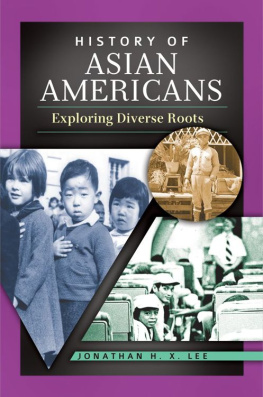GARLAND STUDIES ON
THE ELDERLY IN AMERICA
edited by
STUART BRUCHEY
UNIVERSITY OF MAINE
Decoding The Cultural Stereotypes About Aging
New Perspectives on Aging Talk and Aging Issues
Evelyn M. O'Reilly
First published by Garland Publishing, Inc.
This edition published 2012 by Routledge:
Routledge
Taylor & Francis Group
711 Third Avenue
New York, NY 10017
Routledge
Taylor & Francis Group
2 Park Square, Milton Park
Abingdon, Oxon OX14 4RN
Copyright 1997 Evelyn M. O'Reilly
All rights reserved
Library of Congress Cataloging-in-Publication Data
O'Reilly, Evelyn M., 1931
Decoding the cultural stereotypes about aging: new perspectives on aging talk and aging issues / Evelyn M. O'Reilly.
p. cm. (Garland studies on the elderly in America)
Includes bibliographical references and index.
ISBN 0-8153-3023-5 (alk. paper)
1. AgedPsychology. 2. AgedAttitudes. 3. Stereotype (Psychology) 4. Old agePublic opinion. 5. Aging in literature. I.Title. II.Series.
HQ1061.074 1997
305.26'0973dc21
97-33172
This book is dedicated to my daughter Sharon, as she cherishes her gift from heaven.
Contents
Aging has always been a term that is prominent in our American culture. We encounter the term in the literature, the media, the market place, the health care system, and even the scam artist's repertoire. It is just a simple word, yet it connotes so many inferences.
Consider the concept of aging; can anyone truly define it? I will briefly try to trace its origin. Prior to the nineteenth century people talked about old age, but in a different context than discussions in the twentieth century. Americans identified stages of life; but actual demarcations between the stages to categorize people were not important. Age was not a significant marker in peoples lives.
However, by the end of the century, new advances in medicine identified variations in health patterns of individuals. Many of the deteriorating illnesses occurred during the later years of life, including cognitive impairment. Finally, the term "senile" emerged. This term was really a societal label for degenerating brain efficiency. Gradually, differences between lifespan stages began to evolve.
Eventually, age consciousness developed as "the new kid on the block." In most instances this process was a quiet positive evolution for individuals as they advanced in years. However, age stratification also emerged, and the concept of aging developed. What is this concept? Is it an enigma? When does it begin? It is from this background that this study evolved.
Sharon E . Naum , BS , MBA
This study focuses on the language of aging. Its premise is that aging is a label, a symbol and a myth of cultural stereotypes that is part of the conditions of growing old in American society. The impetus for the study began through my professional work as a nurse educator, and as a practicing nurse in the hospital and community. It occurred to me that age-grading was an ongoing event with the health care team. I thought critically about these phenomena; I wondered if the labels indirectly affected the health teams' image of the aging individual. I discussed the concept with my colleagues, and they acknowledged my concerns. Why was this theory disturbing? Because I believe that stratifying aging individuals in the health care setting could lead to inadequate assessment of the clients' needs. Additionally, as a society, it blunts our sensitivity to what is really going on with the individual.
To enhance the salience of my hypothesis, I went into the community and listened to people talk about the aging individual. I solicited feedback from my relatives and friends. I asked colleagues in distant states to tape some conversations on aging for me. I visited a Caribbean island and observed people and talked to them during their normal everyday routines. A nurse colleague provided me with a taped conversation on the topic from the Irish countryside. As I decoded the language of aging, I wondered, was it a cultural construct? Did people reflectively view all aging individuals in a similar pattern, or was aging talk one thread in a skein of issues?
I searched the literature and discovered a wealth of information about the elderly and the aging individual. However, the search produced comparatively few studies on "The Language of Aging" which was the focus of my study.
Several forms of inquiry were used to implement the study, including viewing the media to identify the common themes of aging, participant observation and interviews of aging individuals and others in their homes and various locations. Data collection took place over eighteen months. Analysis was conducted from a structuralism framework.
Does aging occur at a precise time, and in precise categories, or through a shift in behavior? Travel with me through the chapters of this book, through the literature review, the settings where I interviewed the informants, the analysis, the patterns I discovered. Did the informants fit the stereotypes? Is the myth of aging just thata myth?
This book offers all of us a chance to step outside our reflexive cultural backgrounds, if only for a brief period, to comprehend the world from the perspective of aging individuals who live each day with the myths and stereotypes of their cohort.
This book was inspired by my deceased parents, and my three children: Michael, Anne Marie and Sharon and their spouses; my six granddaughters, and of course little Alexander Ryan; enriched by the previous contributions of my informants, my colleagues, many aging individuals, my students and friends; encouraged by the efforts of Assistant Editor Tania Bissell; Updated and revised through the continued, tireless support, of my daughter Sharon. To her a special thanks; and to her husband Chris. Finally, to the most important person in my life, my husband; who has sustained me in all my endeavors; Thanks Joe!
Decoding the Cultural Stereotypes about Aging
I
Introduction
I had just returned from a workshop titled Creative Aging. As I walked to my car, I reflected on the content of the program. Most vivid in my memory were the elderly participants: Mr. J., ninety-two years, who continues to work each day as a hospital volunteer; Mr. M., eighty-seven years, a recent widower who had to leave early to baby-sit for his grandchildren; Mrs. L., ninety years, who spoke about the voluntary committees she works on, as she coyly folded her cane-chair, least anyone notice she needed supportive assistance. The workshop had many interesting presentations, and yet these energetic individuals 'stole the show.'
What was different about these elderly individuals? Was it their enthusiasm or their energy? Were they unique and were their experiences irrelevant to myths about Aging? How can we know a person from the myth? How can we know the elderly from society's version of a category called Aging? To answer these questions, I looked at people talking about age-related matters. The premise of this study is that Aging is a label, a symbol or a set of myths which is part of the conditions of growing old in American Society. One of the main goals is to identify the markers that demarcate the boundaries of aging.


